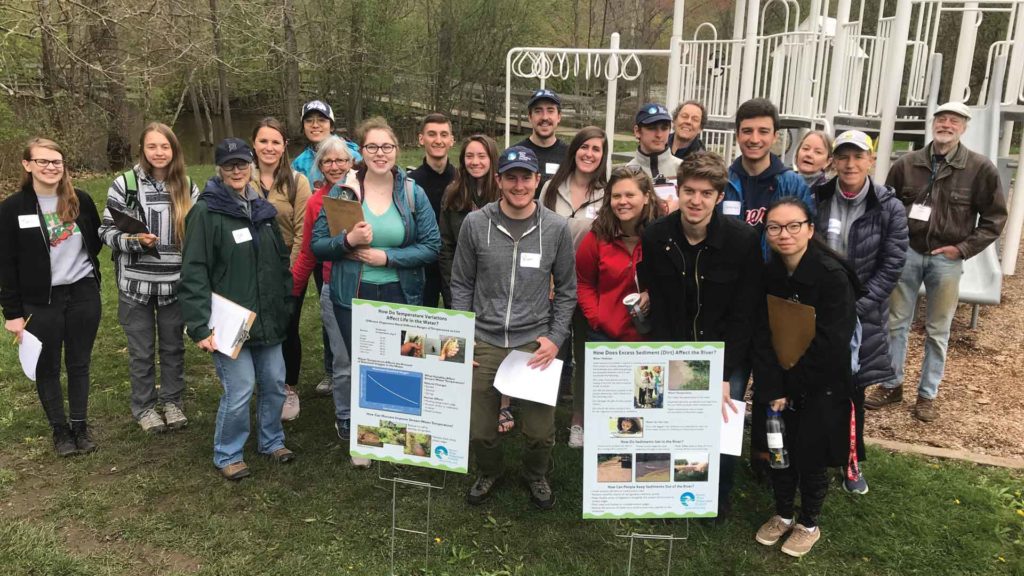PRIORITIZING FUTURE RESTORATION TARGETS
By Leveraging the Skills of Environmental Experts and Student Volunteers
A special excerpt on HRWC’s innovative stream bank analysis work from our Report to the Community 2018-2019, Working with Impact. Thank you to the 24 student interns who supported this study. We are currently seeking applicants for our 2020 internship program.
In 2019 HRWC launched a new initiative to inventory stream segments―also known as “reaches”―in order to identify those that are releasing the most sediment and nutrients

downstream and can thus benefit most from restoration. Working with geomorphologists at the Michigan Department of Environment, Great Lakes and Energy (EGLE), we modified a rapid assessment technique that translates a series of descriptive observations about stream bank and channel characteristics into quantitative erosion rate estimates. By comparing these estimates across watershed and regional standards, HRWC is able to develop a scale of erosion severity for identifying and prioritizing future restoration projects. In the past, HRWC staff and partners have used more complicated methods, resulting in restoration projects such as those completed in Mill Creek, Norton Creek and the Huron River at Riverside Park (Ypsilanti).
This past summer, 24 HRWC student interns divided into small teams to assess reaches throughout the middle section of the watershed, which drains to the river between Barton Pond and the Fleming Creek outlet. Our 2019 student helpers came from 10 different universities and colleges, making them our most diverse class of interns ever. Thanks to their efforts, we were able to evaluate over 72 miles of stream, ranging from small, dry agricultural drains in the Fleming and Traver Creek headwaters to the nearly flooded banks of the Huron through Ann Arbor. The findings will be used in the development of a new watershed management plan.
Upcoming:
Work with us this summer! HRWC’s summer aquatic field internship program allows undergraduates, recent graduates, and new professionals the opportunity to experience field-based water quality monitoring and public education in the context of a well-rounded internship experience. We’re accepting applications right now for this and other internships.



